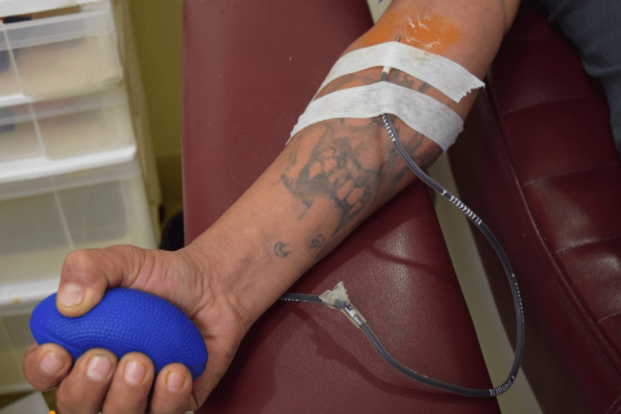Can You Donate Blood After Getting A Tattoo?
Apr 19, 2022
Donating blood is noble practice. Your donated blood can improve someone’s health condition or even save their life. Blood donation is a great way of extending help to a fellow human being. However, there are certain myths that make people believe they are not eligible for donating blood. The most popular one is you cannot donate blood if you have a tattoo. That myth is just a myth.

People from all walks of life get a tattoo and the fad of getting one is not going to end anytime soon. So does that mean these people cannot donate blood ever again? No, that is not true. Getting a tattoo does not automatically put a permanent ban on blood donation.
An individual who donates blood willingly and freely, after he/she has been declared fit post a medical examination for donating blood, without accepting in return any consideration in cash or kind from any source, is considered a donor. This however, does not include a professional or a paid donor.
When you look at the eligibility criteria for a blood donor, there is no source which says that if you have a tattoo you cannot donate. The general qualifications of a blood donor are:
- Be in the age group of 18 to 60 years.
- The weight of donor shall not be less than 45 kilograms;
- Temperature and Pulse of the donor should be normal;
- Haemoglobin should not be less than 12.5 grams;
- The donor shall be free from acute respiratory diseases;
- The donor shall be free from any skin diseases at the site of phlebotomy ;
- Donor should be in good health, mentally alert and physically fit and shall not be inmates of jail, persons having multiple sex partners and drug-addicts
- The donor shall be free from any disease transmissible by blood transfusion
- No person shall donate blood and no brood bank shall draw blood from a person, suffering from namely:
- cancer,
- heart disease,
- abnormal bleeding tendencies,
- unexplained weight loss,
- diabetes-controlled on Insulin,
- hepatitis infection,
- signs and symptoms suggesting AIDS,
- Tuberculosis, asthma, epilepsy, leprosy, schizophrenia, endocrine disorders.
That said, there is a limitation for short period for people with tattoos who wish to donate blood. If you have recently gotten a tattoo, you are required to delay donating blood for at least 6 months. In between this period, you will not be eligible for blood donation. This is a precaution against cross-contamination &blood-borne diseases like hepatitis, HIV etc and blood banks advise letting the design heal by waiting 6-12 months.
Blood-borne illness such as hepatitis is transferred through the blood stream. There’s a risk of transferring it between people that are tattooed with contaminated instrumentation.Since tattooing involves piercing the skin with a needle, there’s invariably some blood concerned. The reason you’re waiting on the brink of a year isn’t for a result that you will be cleared for donation; it is for the result indicating if you have the disease or not to show up in blood tests.
If obtaining your tattoo infected you with hepatitis, you won’t be a candidate for blood donation. If you are cleared not to have hepatitis or on an off chance HIV, then you can go ahead and donate blood and become the superhero in someone’s life.








